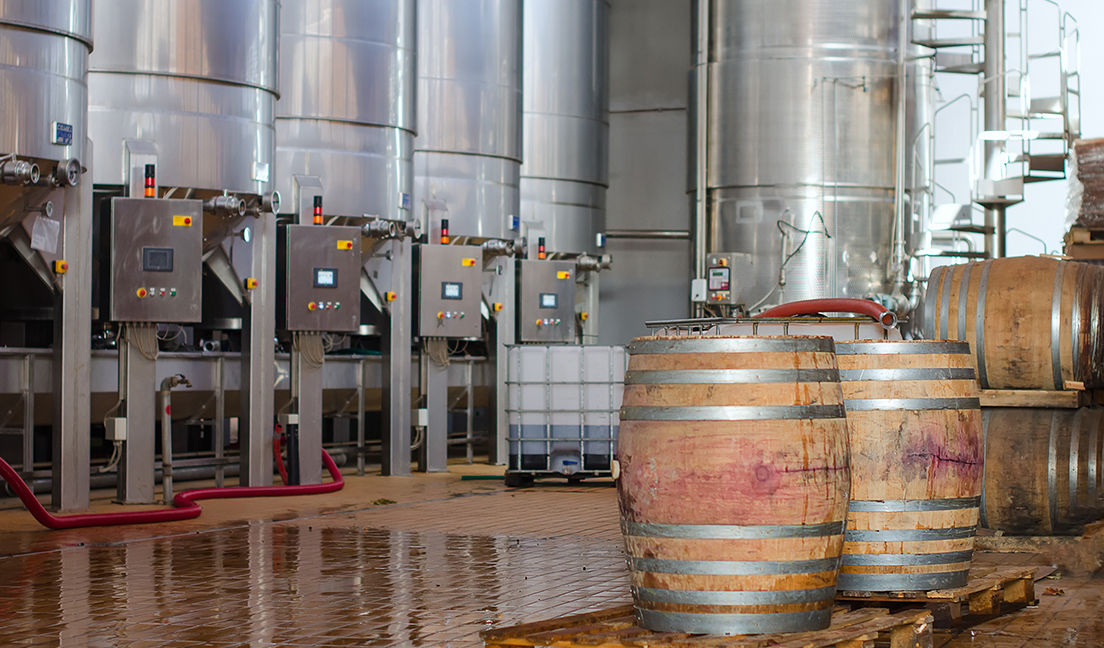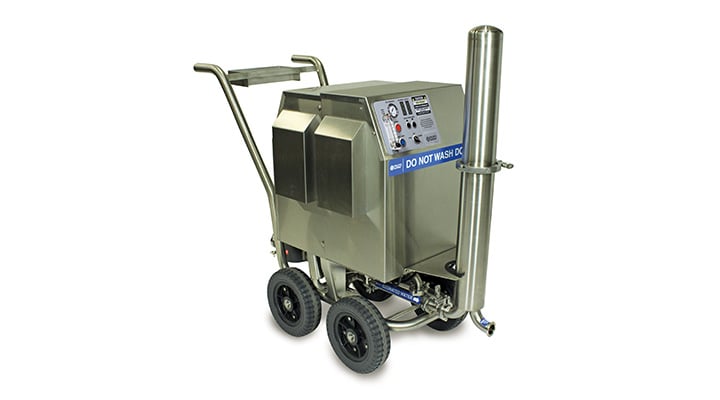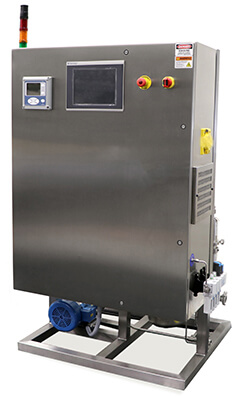
Barrel washing and sanitation has long been a challenge for winemakers due to the porous properties of oak that are difficult to clean. Luckily for winemakers, various sanitation technologies and practices have advanced in the past two decades affecting both the quality of cleaning and preserving the quality of the wine being produced.
Sanitation in winemaking is of the utmost importance. When one barrel of wine represents $30,000 or more in revenue, sanitization and extending the lifecycle for each barrel becomes critically important. Barrel washing is needed to prevent cross-contamination between batches of wine and also to control unwanted microorganisms.
In the past two decades, ozonated water has emerged as viable sanitation* method in the winemaking industry.
Ozone: A Proven Method of Sanitation For Barrel Cleaning
Ozone is an effective method of sanitation for wine barrels. It is widely used in the food and beverage industry and offers higher sanitization quality than chemical, hot water, and steam treatments. Ozone gas is a powerful disinfectant, killing microbes much faster than chlorine, while it also decomposes naturally without leaving harmful byproducts. Ozone also saves time, energy, and reduces chemical usage. Compared to hot water and steam, ozone is a more cost-effective solution that minimizes barrel degradation caused by expansion and contraction.
Ozone is widely utilized as a reliable sanitation agent in various applications within the wine industry, extending beyond the mere sanitation of barrels. It has demonstrated efficacy in reducing microorganisms on surfaces in wineries, making it a valuable surface sanitizer. Additionally, ozone is employed in clean-in-place (CIP) procedures for process and transfer piping, effectively eliminating biofilms and preventing microbial contamination. Harvest bins, crushing and destemming machines, conveyors, bottles, bottling equipment and even floors are routinely and effectively sanitized using ozone.
Increasingly, wineries are choosing to have ozone available on tap at various key locations in both white and red wine facilities. These building-wide centralized ozone systems are the trend of the future and serve as a foundation for broader and more creative ozone solutions given the significant value ozone delivers related to sanitation.
How Much Ozone Concentration Is Required?
Standard procedure for barrel washing varies from winery to winery, though it, typically includes a high-pressure hot water rinse followed by an ozonated water treatment. The combination of hot water under high pressure knocks the tartrates off while the sanitation properties of the ozonated water ensures that ozone can penetrate the buildup and residue for complete sanitization of the porous barrel interior.
The concentration of ozone applied as well as the contact reaction time in the barrels depends on the quantity and nature of the contaminant. Larger quantities of microbes in contaminated barrels require longer treatments, but smaller doses may be required to handle sensitive materials. Ozone is a flexible sanitizing tool, with precise dosages and applications for specific microbial targets.
Benefits of Barrel Sanitation with Ozone
Extending Barrel Life
Most critically, the ozone treatment process does not damage the interior or reduce the useful life of the barrel, unlike the use of chemical sanitation which causes degradation. Ozone enhances the barrels by preventing organic buildup that undercuts the longevity of these precious assets.
Ozone washing of wine barrels saves wineries considerable money on the high costs of replacing contaminated wine barrels. Before using ozone, wineries typically replaced a significant percentage of these barrels every year due to contamination and regular deterioration. Ozone treatment reduces barrel spoilage loss, thus reducing overhead costs and increasing production flexibility. It is also interesting to note that in the secondhand barrel market, ozone-sanitized oak barrels command higher prices than those cleaned traditionally. As a result, most ozone installations have a high return on investment and short break-even period.
Flavor
Importantly, ozone does not alter the flavor profile wine barrels provide. Even for oak barrels, which add valuable flavor to wine, ozone has been proven as a good alternative sanitizing agent that does not alter the flavor. Meanwhile, chemical treatments can leave a residual that may influence the flavor and aroma of wine while using hot water is both expensive to produce and strips some flavors from the barrel.
Takeaways
Ozone offers benefits beyond sanitization of barrels by enabling water reuse and bottle rinsing in wineries. Its strong oxidizing properties allow it to break down organic compounds and eliminate microbial contaminants, making it suitable for purifying water for reuse in various winery processes, including bottle rinsing operations.
In summary, ozone plays a crucial role in the wine industry by providing effective sanitization in diverse applications. Its utilization for surface and equipment sanitization, tank cleaning, CIP processes, water reuse, and bottle rinsing has been supported by scientific research and practical implementation. The use of ozone for sanitation allows winemakers to preserve and extend the lifecycle of barrels without compromising the flavor and quality of wine produced.
* Evoqua Pacific Ozone® Generation systems undergo factory acceptance testing to ensure they are capable of producing the desired ozone concentration, based on operational parameters outline in the Operating Manual. System performance of microorganism inactivation depends on the CT value, pH, and temperature of water. Performance limitations depend on feed conditions, overall installed system design, and operation and maintenance processes; please refer to Operations Manuals. For more information: Contactus@evoqua.com

